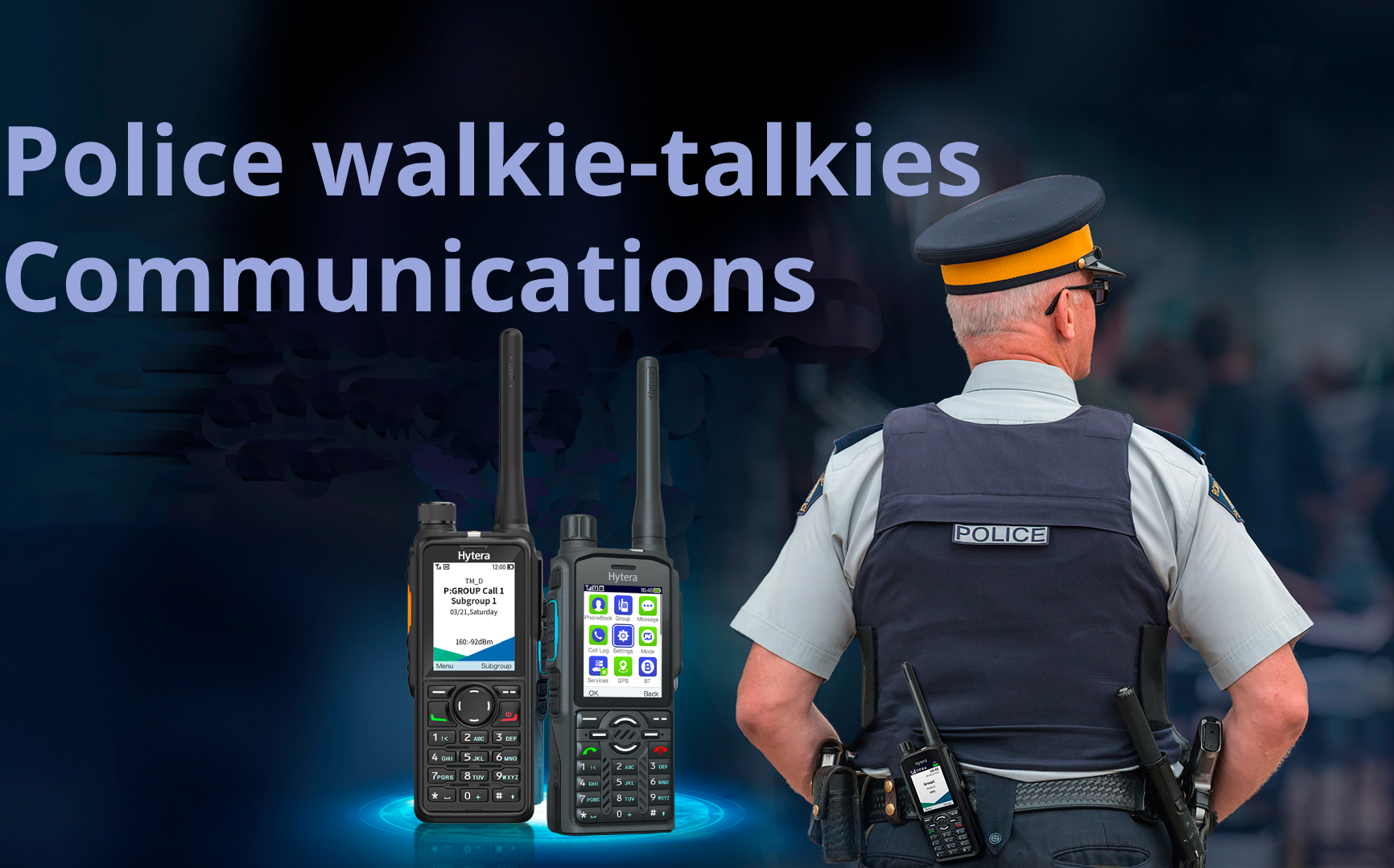How Police Two-Way Radio Ensure the Security of Police Communications?
Two-way Radio
Now more than ever, secure communications are crucial for police and even the whole society's public safety. One might wonder why in this era dominated by advanced communication technologies, police still rely on two-way radios as a key tool in their daily operations.
The biggest difference between police two-way radios and smart phones is that police two-way radio is information encryption during communication. Smart phones are more vulnerable to hackers due to their reliance on cellular networks, and more notably, they are susceptible to software vulnerabilities caused by third-party applications. Two-way radios have far fewer vulnerabilities, operate on dedicated frequencies, and have stricter security protocols that make them harder to hack.this article explores the importance of Police two-way radios and their continued relevance in the ever-evolving landscape of law enforcement.

The Benefit of using encrypted two-way radio communication for police
Police two-way radio offers crucial advantages that make them a communication tool integral part of police officers.
Police radio is normally assigned a unique encryption key to allow users to communicate securely. Users of these radios can then send a message that is digitized and encrypted (locked) and can only be decrypted (unlocked) and received by those radio users with the same unique key.
Police ensure the security of communications, enhancing officer safety and coordination to ensure effective communication during critical incidents, in case of leaks and inappropriate access can damage the effectiveness and reputation of these police officers and can hurt the safety of police officers and the wider public.
Hytera DMR two-way radio and TETRA Radio with an encrypted solution for police communications
When we talk about encrypted communications, many people immediately think of traditional police radio scanners, most people who buy a scanner do so to hear what is happening around them. They want to hear from their local police or fire departments and know what is happening in their neighborhoods. Other scanner users have a professional need, police and firefighters want to hear their agency when off duty and neighboring agencies when they are on the job. Tow trucks want to know when there are wrecks in which they are needed. Security guards need to listen for activity in their areas, and so on. so we know the police scanners are not encrypted, and the information is open to the public. Thus Digital radios are much easier to secure and do not suffer from audio degradation when encrypted. The encryption solutions for Hytera DMR digital radios do provide extremely good protection against common handheld scanners.
The encryption solutions for Hytera DMR digital radios do provide extremely good protection against common handheld scanners. DMR radios also have the advantage of still being able to communicate with analog radios if you have mixed fleets.
Hytera DMR radios offer three or four possible levels of encryption, these are Basic, Enhanced, Advanced, or Customized. The Basic encryption is scrambling used mainly for analog mode operation or the Basic encryption using 10, 32, or 64 characters'keys, the Enhanced DMR Association ARC4 40 bits or Advanced AES 128 bits or the AES 256 bits'encryption the last is Customization of SIM or SD Card to be inserted into the radio with customer's Proprietary encryption algorithm.
The Basic Privacy solution provides key options between 1-255 using 10, 32, or 64 characters to the transmission and receiver frequency, each of which must match up. The keys are not customized, so if a hacker was so minded they need only scan all 255 keys to potentially hit on the one you are using.
The Enhanced privacy option uses 40-bit encryption (or five bytes), which corresponds to a total of 240 possible keys, or, approximately a trillion permutations. This is more secure than Basic privacy as the user inputs a customized key using a mix of letters and numbers, along with a key name and a number slot assignment - all of which must match up. It is much harder for a hacker to work out a customized key. Nonetheless, in modern computing terms, 40-bit encryption is now regarded as relatively low security, and with today's computing power using high-speed processors, it is possible to break a 40-bit code using what is called a 'brute-force' attack very quickly.
For Advanced encryption, DMR radios use either 128-bit or AES (Advanced Encryption Standard) 256-bit. AES 256 is generally regarded as among the safest encryption types available and it is widely used by national governments, public safety departments, and agencies. The AES specification for the encryption of electronic data was established by the US National Institute of Standards and Technology (NIST) in 2001. AES provides a family of ciphers with different key and block sizes. Hytera HP78X Professional DMR Portable Two-way Radio and PT590 Mission Critical TETRA Portable Radio are with advanced encryption, these radios are designed specifically to meet the needs of law enforcement, offering durability, security, and advanced communication functionalities.
In summary, police radio communication is an essential component of law enforcement operations, enabling efficient coordination and rapid response to critical situations. With technologies such as TETRA and backbone networks, law enforcement agencies can ensure reliable and secure communication at all times, contributing to community safety and security.
For more information on how to enhance security on police two-way radio, contact one of Hytera's Authorized Dealer.





